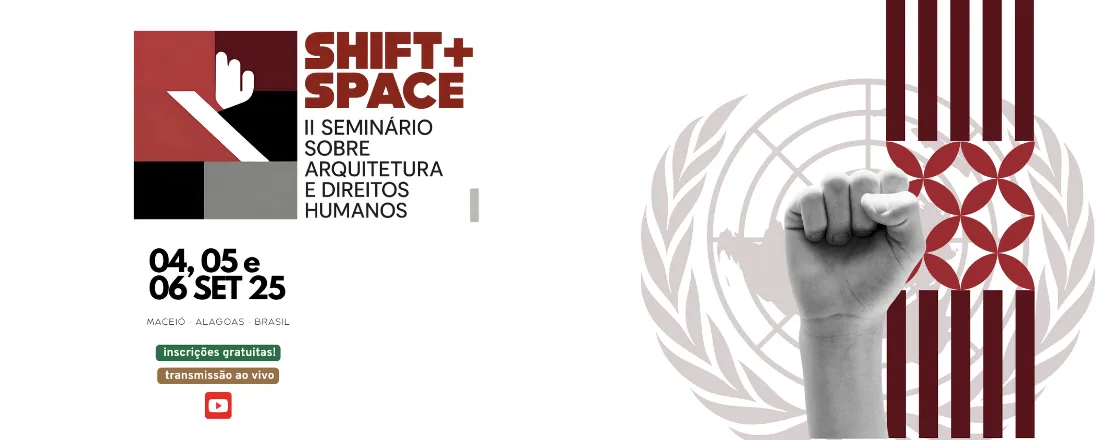PT - O planejamento de espaços públicos e privados como cenários de garantia de direitos humanos é urgente na contemporaneidade. Parâmetros nacionais e internacionais sobre o tema ainda são informações subliminares para alguns e que carecem de maior esclarecimento para que a população possa protagonizar a exigência de direitos, como o direito à acessibilidade, à segurança pública, à segurança sanitária, à moradia, dentre outros.
Em um contexto social marcado pela divulgação de fake news, discurso de ódio e violência nas redes sociais, uma estratégia de ‘contra informação’ parece ser eficiente para “armar” a população pela/para a disseminação de conteúdo sobre estes paradigmas que podem proporcionar a produção de indivíduos opressores e segregadores que carregarão em si valores morais que acabarão refletidos nos espaços co-criados por este tipo de sociedade.
Há uma grande parte da população que ainda é contaminada por posicionamentos que ignoram a legitimidade em proteger grupos mais vulneráveis, indo de encontro a tratados e normas de direitos humanos agravadas pela desinformação ou pela disseminação de fake news. Isto prejudica a noção sobre o que é o direito do outro e o seu próprio direito e acarreta em cometimento de violações e/ou violências contra grupos considerados como minoritários.
A busca por conhecimento de profissionais com amplo conhecimento sobre direitos humanos e arquitetura de modo abrangente, dentro e fora do Brasil, fomenta a diversidade de entendimentos, reflexões e técnicas sobre uma temática que precisa ser multidisciplinar. A proposta do II Seminário Internacional sobre Arquitetura e Direitos Humanos tem condições de ser a porta de entrada à convergência de conhecimento que falta aos arquitetos, advogados, psicólogos, assistentes sociais, docentes e discentes das academias, autoridades municipais, estaduais e federais, órgãos judiciários e sociedade civil para que haja um trabalho em comum rumo à produção de espaços mais democráticos e menos opressores.
Em uma imersão de três dias com temáticas relacionadas ao gênero, acessibilidade, segurança pública e Arquitetura e Urbanismo, o encontro será um momento estratégico para discutir um tema que é realidade nas dinâmicas sociais, porém de invisibilidade costumeira em discussões acadêmicas, profissionais e informais.
ENG - Planning public and private spaces as settings for guaranteeing human rights is urgent in contemporary times. National and international parameters on the subject still provide subliminal information for some and require greater clarification so that the population can take the lead in demanding rights, such as the right to accessibility, public safety, health security, housing, among others.
In a social context marked by the dissemination of fake news, hate speech and violence on social media, a ‘counter-information’ strategy seems to be efficient in “arming” the population by/for the dissemination of content about these paradigms that can lead to the production of oppressive and segregating individuals who will carry within themselves moral values that will end up being reflected in the spaces co-created by this type of society.
There is a large part of the population that is still contaminated by positions that ignore the legitimacy of protecting more vulnerable groups, going against human rights treaties and standards that are aggravated by misinformation or the dissemination of fake news. This undermines the notion of what the rights of others are and what one's own rights are, and leads to the commission of violations and/or violence against groups considered to be minorities.
The search for knowledge from professionals with extensive knowledge of human rights and architecture in a comprehensive manner, both within and outside Brazil, fosters diversity of understandings, reflections and techniques on a topic that needs to be multidisciplinary. The proposal for the II International Seminar on Architecture and Human Rights has the potential to be the gateway to the convergence of knowledge that architects, lawyers, psychologists, social workers, academics and students, municipal, state and federal authorities, judicial bodies and civil society lack, so that there can be joint work towards the production of more democratic and less oppressive spaces.
In a three-day immersion with themes related to gender, accessibility, public safety and Architecture and Urbanism, the meeting will be a strategic moment to discuss a topic that is a reality in social dynamics, but is usually invisible in academic, professional and informal discussions.






